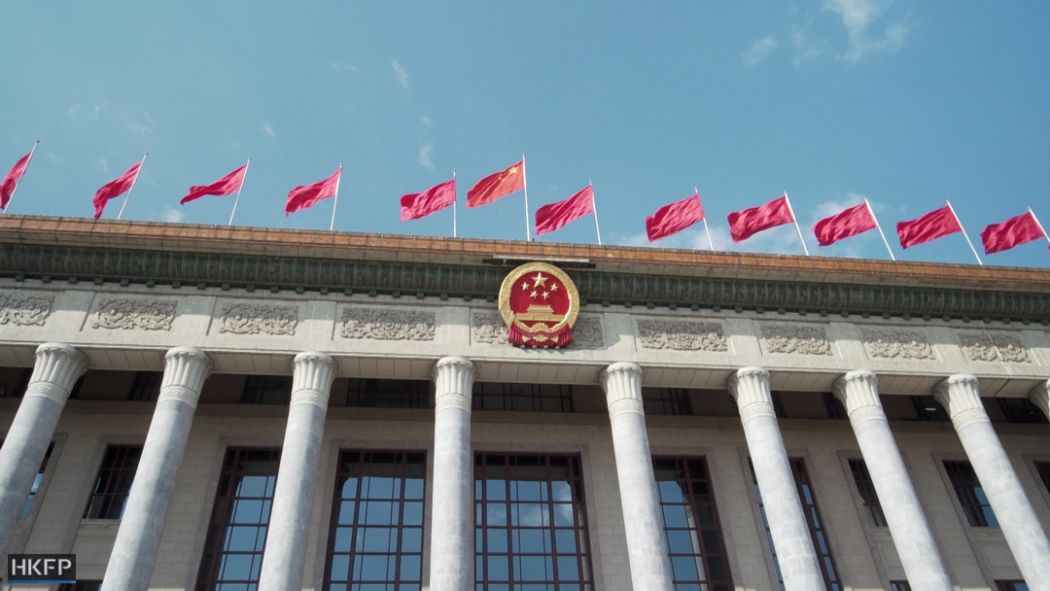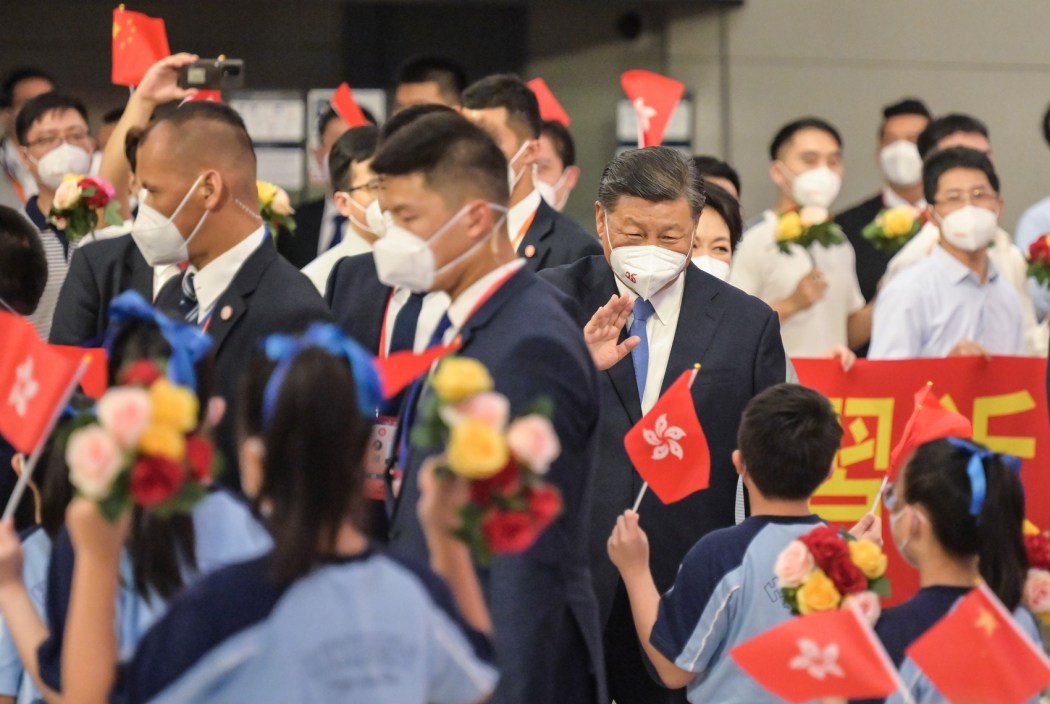By Laurie Chen
Xi Jinping secured a historic third term as China’s leader on Sunday and promoted some of his closest Communist Party allies, cementing his position as the nation’s most powerful leader since Mao Zedong.

The Central Committee of the Chinese Communist Party elected Xi as its general secretary for another five-year term, Xinhua reported, tilting the country decisively back towards one-man rule after decades of power-sharing among its elite.
“I wish to thank the whole party sincerely for the trust you have placed in us,” Xi told journalists at Beijing’s Great Hall of the People after the closed-door vote was announced.
He promised to “work diligently in the performance of our duties to prove worthy of the great trust of our party and our people.”
Xi was also reappointed head of China’s Central Military Commission.
The 69-year-old is now all but certain to sail through to a third term as China’s president, due to be formally announced during the government’s annual legislative sessions in March.

His anointment came after a week-long Congress of 2,300 hand-picked party delegates during which they endorsed Xi’s “core position” in the leadership and approved a sweeping reshuffle that saw former rivals step down.
The 20th Congress elected the new Central Committee of around 200 senior party officials, who then gathered on Sunday to elect Xi and the other members of Standing Committee — the apex of Chinese political power.
Some of Xi’s closest allies were announced in the seven-man committee.
Former Shanghai party chief Li Qiang, a confidante of Xi’s, was promoted to number two, making him likely to be named premier at the government’s annual legislative sessions next March.
Since becoming the country’s leader a decade ago, Xi has achieved a concentration of power like no modern Chinese ruler other than Mao.
He abolished the presidential two-term limit in 2018, paving the way for him to govern indefinitely.
Xi has also overseen China’s rise as the world’s second-biggest economy, a huge military expansion and a far more aggressive global posture that has drawn strong opposition from the United States.
Despite nearly unchecked power, Xi faces huge challenges over the next five years, including managing the nation’s debt-ridden economy and the growing US rivalry.
Contemporary China
Sunday’s vote brings to an end a triumphant week at which China’s top brass have hailed their leadership of the country over the last five years.
In his opening speech to its 20th Congress last Sunday, Xi lauded the party’s achievements while glossing over domestic problems such as the stalling economy and the damage inflicted by his harsh zero-Covid policy.

Heavy on ideological rhetoric and light on policy, a defiant Xi also urged party members to steel themselves against numerous challenges including a hardening geopolitical climate.
Analysts were closely watching for whether the party charter would be amended to enshrine “Xi Jinping Thought” as a guiding philosophy, a move that would put Xi on a par with Mao.
That did not take place, though a resolution did call the creed “the Marxism of contemporary China and of the 21st century”, adding that it “embodies the best Chinese culture and ethos of this era”.
Hu led away
In an unexpected move that punctured the proceedings at Saturday’s Congress closing ceremony, former leader Hu Jintao was led out of the hall.
The frail-looking 79-year-old seemed reluctant to leave the front row where he was sitting next to Xi.
State media reported late Saturday that Hu had insisted on attending the session despite being unwell.
“When he was not feeling well during the session, his staff, for his health, accompanied him to a room next to the meeting venue for a rest. Now, he is much better,” Xinhua said on Twitter, a social media platform that is blocked in China.
Support HKFP | Policies & Ethics | Error/typo? | Contact Us | Newsletter | Transparency & Annual Report | Apps
Help safeguard press freedom & keep HKFP free for all readers by supporting our team

LATEST FROM HKFP
HKFP has an impartial stance, transparent funding, and balanced coverage guided by an Ethics Code and Corrections Policy.
Support press freedom & help us surpass 1,000 monthly Patrons: 100% independent, governed by an ethics code & not-for-profit.










